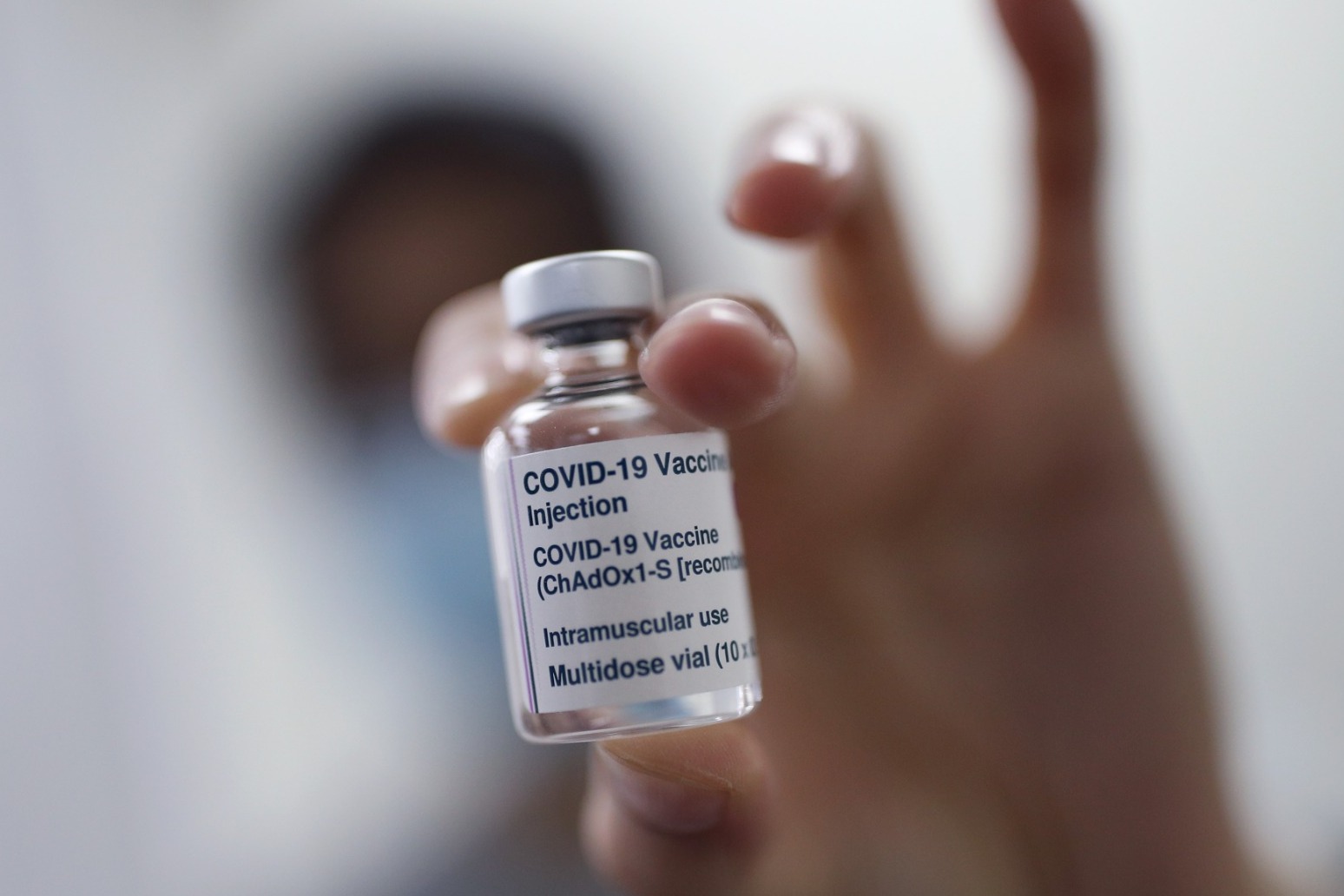
Oxford/AstraZeneca jab trial in children paused
The trial of the Oxford/AstraZeneca vaccine in children has been paused while regulators investigate reports of a rare form of blood clot among adults.
But it is waiting for more information from the Medicines and Healthcare products Regulatory Agency (MHRA) before giving any more vaccinations.
Regulatory bodies from the UK, Europe and the World Health Organisation (WHO) are assessing data on the jab and a potential association with a rare form of blood clot.
The WHO and the European Medicines Agency (EMA) have confirmed they will publish findings later this week.
The University of Oxford said in a statement: “Whilst there are no safety concerns in the paediatric clinical trial, we await additional information from the MHRA on its review of rare cases of thrombosis/thrombocytopaenia that have been reported in adults, before giving any further vaccinations in the trial.
“Parents and children should continue to attend all scheduled visits and can contact the trial sites if they have any questions.”
Sage adviser Professor Calum Semple said that the decision was made out of “exceptional caution” and urged people to continue accepting Oxford/AstraZeneca jabs.
He told Channel 4 News: “This has been done out of exceptional caution and the big story still is that for a middle-aged, slightly overweight man, such as myself, my risk of death is one in 13,000 – the risk of this rare clot, which might not even be associated with the vaccine, is probably one in a million.
“So I’m still going to say it’s better to get the vaccine than not get the vaccine and we can pause and take time to carefully consider the value for children because they’re not at risk of death from Covid.”
He added: “If you’ve been called for the vaccine then you’re in an age group that is very likely to benefit from the vaccine. So the bottom line is if you’ve been called for the vaccine I would urge you to take the vaccine.”
The Prime Minister urged the public to trust the regulator on vaccine safety.
Boris Johnson said getting the population vaccinated was “the key thing”, while he visited the AstraZeneca manufacturing plant in Macclesfield.
“On the Oxford/AstraZeneca vaccine, the best thing people should do is look at what the MHRA (Medicines and Healthcare products Regulatory Agency) say, our independent regulator – that’s why we have them, that’s why they are independent,” he said.
“Their advice to people is to keep going out there, get your jab, get your second jab.”
He added: “The best thing of all is to vaccinate our population, get everybody out getting the jab, that’s the key thing and that’s what I would advocate, number one”.
The MHRA is also investigating reports of a very rare and specific type of blood clot in the brain, known as cerebral venous sinus thrombosis (CVST), occurring together with low levels of platelets (thrombocytopenia) following vaccination.
It has not confirmed when it will report its findings.
The EMA’s said that its safety committee has “not yet reached a conclusion and the review is currently ongoing” but it is expected to announce findings on Wednesday or Thursday.
Meanwhile, experts from the WHO confirmed they were also convening a panel of experts to assess the data and will publish findings on Wednesday or Thursday.
Dr Rogerio Pinto de Sa Gaspar, director of regulation and prequalification at the WHO, said: “There is no link for the moment between the vaccine and thrombolytic events with thrombocytopenia.
“There are a number of committees and regulatory authorities looking at data and new data is coming every day and [they are] assessing those data.
“Of course it’s under evaluation and we wait for some feedback from those committees in coming days and hours.
“The appraisal that we have for the moment, and this is under consideration by the experts, is that the benefit-risk assessment for the vaccine is still largely positive.”
He announced that the WHO will convene its Global Advisory Committee on Vaccine Safety to examine the data.
“So we expect that probably by the end of Wednesday or Thursday we might have a fresh conclusive assessment from our experts,” he added.
“But at the present moment we are confident that the benefits risk assessment for the vaccine is largely still positive.”
The MHRA has said it identified 30 cases of rare blood clot events out of 18.1 million doses of the jab administered up to and including March 24.
There have been seven deaths among the 30 cases.
But the regulator said the benefits of the vaccine in preventing coronavirus outweigh any risks and it urged the public to continue coming forward for the jab.
MHRA chief executive Dr June Raine said: “People should continue to get their vaccine when invited to do so.
“Our thorough and detailed review is ongoing into reports of very rare and specific types of blood clots with low platelets following the Covid-19 vaccine AstraZeneca.
“No decision has yet been made on any regulatory action.”
The 30 cases in the UK include 22 reports of CVST and eight of other thrombosis events with low platelets.
CVST clots stop blood draining from the brain properly.
Published: by Radio NewsHub